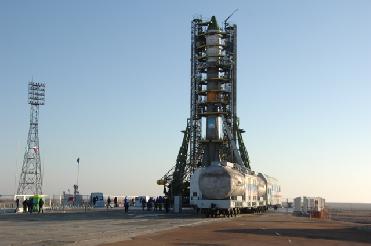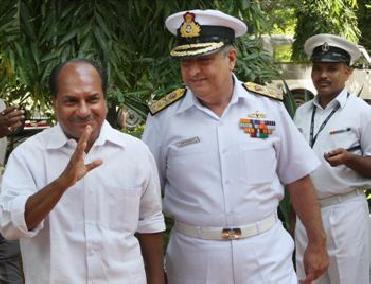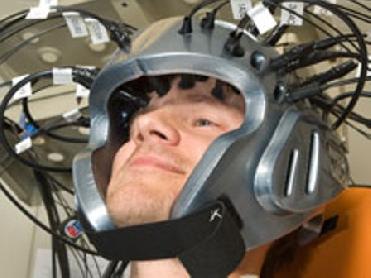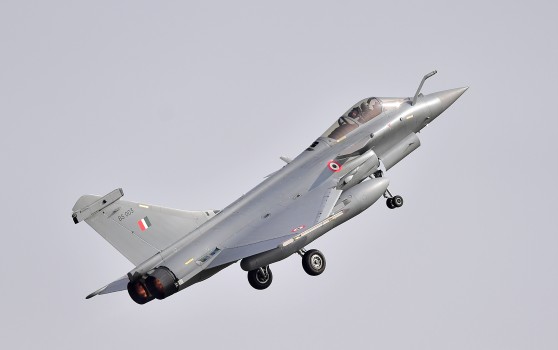
Soyuz-U launch vehicle with Progress M-01M transport vehicle on the launch pad on Baikonur site. Photo credit -- SP Korolev RSC Energia
MOSCOW (BNS): Russia has launched a Soyuz-U carrier rocket with a cargo spacecraft equipped with a new on-board digital control system from the Baikonur space center in Kazakhstan.
The rocket was launched on Wednesday at 6:38 am, the mission control said. It is expected to dock with the space station on Sunday at 6:23 am.
Russian news agency RIA Novosti quoting a spokesman said the flight of the first cargo spacecraft in the new digitally controlled Progress M-01M series will take four days to check the proper operation of all on-board systems. Also called ISS Progress 31, it carries special Thanksgiving Day gifts for Expedition 18 Commander Mike Fincke and Flight Engineers Yury Lonchakov and Sandy Magnus.
Meanwhile, the mission control said it would conduct checks to make sure the digital equipment responds promptly to commands. If there are no performance problems, it will switch to a regular two-day pattern of operation, it said.
According to the agency, the new space freighter will deliver 2.7 tonnes of cargo to the orbital station, including food and water supplies for the current crew, as well as fuel and scientific equipment.
NASA said that a Progress antenna issue has been cleared, and the spacecraft will use the automated Kurs system to dock to the Pirs docking compartment. Expedition 18 Flight Engineer Yury Lonchakov will be at the manual TORU docking system controls, should his assistance become necessary, it said.
The unpiloted spacecraft has taken to the orbiting laboratory more than 1,800 pounds of propellant, over 100 pounds of oxygen and air, more than 450 pounds of water and nearly 3,000 pounds of dry cargo. The total cargo weight is 5,342 pounds, NASA said.
 Previous Article
Previous Article Next Article
Next Article













The Indian Air Force, in its flight trials evaluation report submitted before the Defence Ministry l..
view articleAn insight into the Medium Multi-Role Combat Aircraft competition...
view articleSky enthusiasts can now spot the International Space Station (ISS) commanded by Indian-American astr..
view article